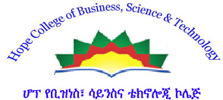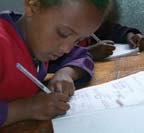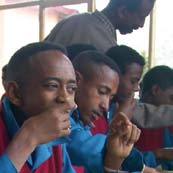|
HOPE Enterprises
Basic care as the foundation of hope is addressed in various programs for both immediate emergency relief and longer-term sustainability. HOPE has full and partial child sponsorship, provision of breakfast for street children, programs of dry ration for victims of drought and conflict and soup kitchens for the hungry. It also carries out food security development projects by distributing seeds, restocking livestock, drilling wells. Hope’s investment in education has done wonders. Running no less than six of its schools from nursery to high school for the needy, financing the educational expenses of poor children in the public school system and operating alternative basic education for those like street children and home workers who could not join formal education, Hope has enabled many to lay the foundation for eventual freedom from poverty. Through this ladder, a sizable number of Hope’s students have also qualified for colleges, preparatory schools and various vocational programs. Hope has ran all its operations within a value context. This ladder cross-cuts all the others and addresses the non-technical aspect of the development of our beneficiaries. With virtually all of our beneficiaries coming from shattered backgrounds, their personalities, social outlooks, and relations with others must be put on a track that enhances their acceptance in society and builds confidence and self-esteem, unencumbered by the scars of the past. We offer training, peer discussions, and one to one and group counseling on topics such as ethics, the opposite gender, life management, and the workplace, in order to develop a healthy outlook about themselves and the world around them. discussions, and one to one and group counseling on topics such as ethics, the opposite gender, life management, and the workplace, in order to develop a healthy outlook about themselves and the world around them. As important as skills have been in the labor market, HOPE has incorporated skills training for use by students from its own schools as well as from other charities. In all programs, the focus is on practical shop training with apprenticeship. After training, Hope takes the logical step of mediating for jobs or business development involving its graduates. On average, 85% of graduates secure employment within a year of graduation and quite a few have been set up with their own businesses going beyond themselves as employers of others. Hope expects a lot from the Hope University College seeing it as a strategic investment to help not only individuals but a nation that has suffered much from an acute brain drain. With this level of service delivery Hope will also have a chance to be innovative with the college’s emphasis on intelligence development and exemplary as individuals with a service attitude will be trained. In this input, Ethiopia will benefit for generations. |
|
||||||||
Copyright © 2015 Hope University College in Addis Ababa, Ethiopia |





